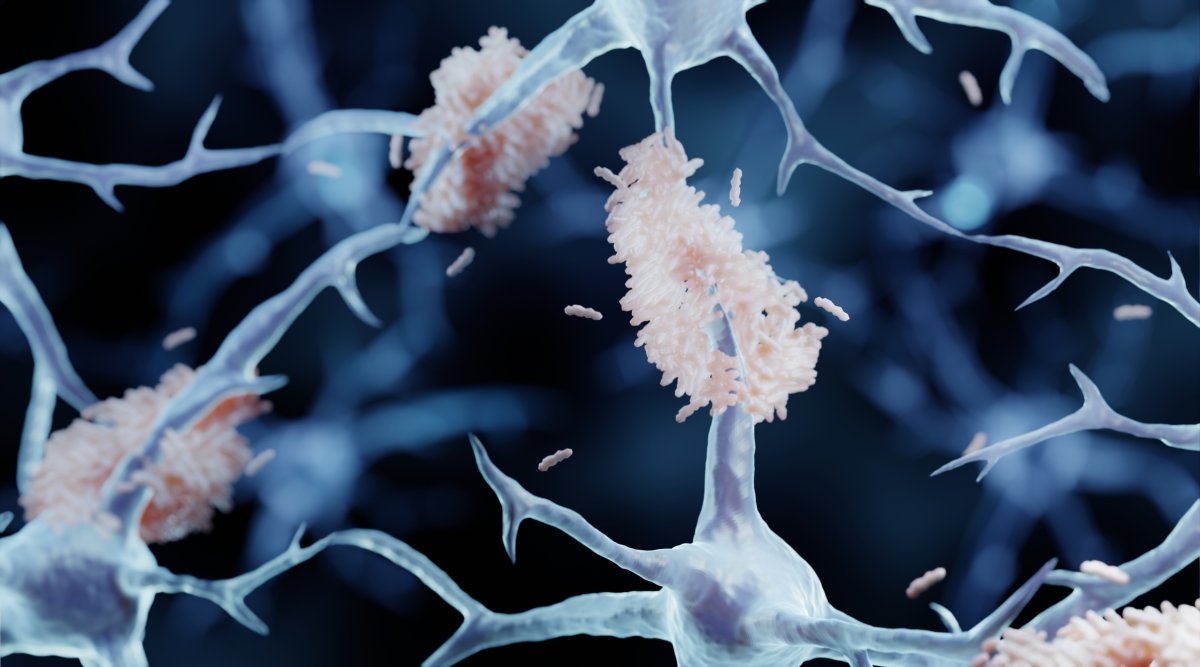Two common habits could be putting you at an increased risk of Alzheimer's and related dementias, neuroscientists have warned.
Alzheimer's disease affects roughly 5.8 million Americans, according to the Centers for Disease Control and Prevention. The progressive condition is the most common form of dementia and is associated with memory loss and cognitive decline in the regions of the brain involved in thought, memory and language.
Scientists believe that Alzheimer's is caused by the abnormal buildup of proteins in and around our brain cells, although exactly what triggers this buildup is still unclear. But what we do know is that our risk of developing Alzheimer's is dependent on a range of genetic and environmental factors. And among these environmental factors are alcohol consumption and chronic stress.

"Alcohol consumption and stress are going to have a synergistic effect on Alzheimer's Disease risk and general cognitive decline," Nikki Crowley, director of the Penn State Neuroscience Institute at University Park and an assistant professor of biology, told Newsweek.
Read more: Compare Top Health Savings Accounts
"This means that when an individual is exposed to both a high amount of stress and drinks alcohol, the combination of the two has a greater impact on that person's risk of Alzheimer's disease and cognitive decline. And it's really going to depend on how much, and how long, an individual experiences stress and alcohol, either together or separately, as well. For instance, some people consume alcohol to cope with stress, and this can have further cascading negative health effects."
Crowley and colleagues recently published a meta-analysis of the existing research into this synergistic association, which was published in the journal Neurobiology of Stress. And while the exact neuroscience at play here is not fully understood, neuroscientists like Crowley are beginning to fill in the missing pieces of the puzzle.
"Work out of my lab using animal models, which allow us to investigate the mechanism of these changes in the brain on a really rapid timescale, suggests that even moderate amounts of alcohol consumption in midlife can lead to long-lasting changes in the brain that are unlikely to return to their baseline trajectories," Crowley said.
In particular, alcohol consumption may cause changes in glutamate signaling, which plays an important role in shaping our learning and memory. Interestingly, these same changes are seen during cognitive decline.
"While there's a lot to be done, I think the field is likely going to converge on both alcohol, stress, and other risk factors influencing brain glutamate signaling and inflammation—something researchers have colloquially named 'inflammaging'—in key brain regions related to cognition and memory," Crowley said.
With this in mind, what can you do to reduce your risk of developing Alzheimer's? Let's start off with alcohol:
"The National Institutes of Alcohol Abuse and Alcoholism at the National Institutes of Health does not recommend a safe level of alcohol consumption," Crowley said. "They do have some guidelines to help you make healthy decisions though—they suggest less than two alcoholic drinks a day for men and one alcoholic drink a day for women. But any alcohol consumption comes with risks.
"If you have a family history of an alcohol use disorder, or of Alzheimer's Disease or related dementias, you can talk to your family doctor about whether a zero-alcohol lifestyle is best for you."
Aside from cutting down on alcohol, Crowley recommends the following: "Taking care of any chronic health issues, working on your diet, getting more physical activity (and sleep!), and limiting alcohol and tobacco use will all have beneficial effects," she said. "And of course, reducing stress—this can include increasing the amount of time you spend socializing and in mentally stimulating environments."
Is there a health problem that's worrying you? Let us know via health@newsweek.com. We can ask experts for advice, and your story could be featured on Newsweek.
Uncommon Knowledge
Newsweek is committed to challenging conventional wisdom and finding connections in the search for common ground.
Newsweek is committed to challenging conventional wisdom and finding connections in the search for common ground.
About the writer
Pandora Dewan is a Senior Science Reporter at Newsweek based in London, UK. Her focus is reporting on science, health ... Read more
To read how Newsweek uses AI as a newsroom tool, Click here.






